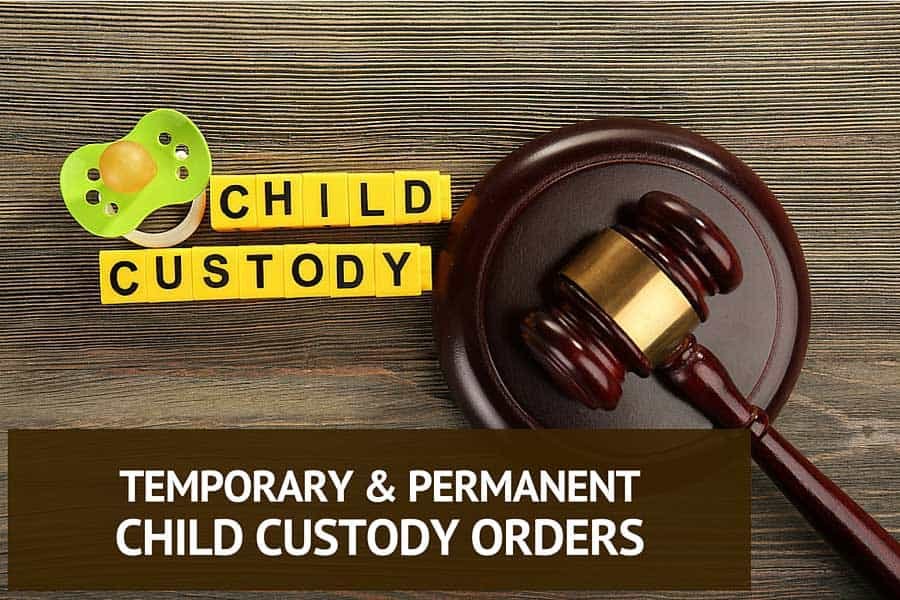- Karachi
- lahore
- islamabad
Legal guardianship is a vital legal arrangement that ensures the well-being and protection of individuals who are unable to care for themselves. It is a formal process recognized by the law, allowing a responsible individual to assume the role of a guardian and make decisions on behalf of the ward. Legal guardianship provides a legal framework to safeguard the interests of those who cannot advocate for themselves, ensuring their rights, safety, and welfare are upheld.

The guardianship process involves several crucial steps in Pakistan to establish and maintain guardianship effectively. It begins with filing a petition with the court, detailing the reasons for seeking guardianship and providing necessary documentation. The court carefully evaluates the circumstances to determine the necessity of guardianship and assesses the proposed guardian’s suitability. This may include background checks, interviews, and home visits to ensure the well-being of the ward.
A court-appointed guardian is an individual designated by the court to assume the role of a guardian for someone in need. The court appoints a guardian when it determines that an individual lacks the capacity to make decisions independently or requires assistance in managing their affairs. The court-appointed guardian holds legal authority and is responsible for making decisions in the best interests of the ward, ensuring their safety, care, and overall well-being.
Guardianship grants specific rights to the appointed guardian, empowering them to act on behalf of the ward. These rights include making decisions regarding the ward’s medical treatment, education, living arrangements, and financial matters. The guardian becomes the voice and advocates for the ward, making informed choices that protect their interests and enhance their quality of life. Guardianship rights carry the responsibility to act diligently and in the ward’s best interests.


The Guardianship and Wards Act of 1890, legislation dating back to pre-partition times, governs the laws regarding guardianship and child custody in Pakistan. This act, which has been amended over time, established the Guardian and Wards department in each province to handle matters concerning minors and their guardians.
Child custody in Pakistan refers to the rights of parents to raise and care for their children, including making decisions related to their well-being. Parents bear the responsibility of ensuring the child’s basic needs such as health, education, religious upbringing, and overall welfare.
After a divorce in Pakistan, child custody becomes a significant and contentious issue, with both parents seeking legal provisions to gain custody of their children. Being a single parent can be challenging, leading parents to explore their options within the child custody laws.
Sec. 17 and 25 of the Guardians and Wards Act, of 1890, encompass the rights of parents regarding the custody of minors, commonly known as “Hizanat” and “Willayat.” “Hizanat” refers to the custody of minors by the mother, while “Willayat” pertains to the custody of minors by the father. It’s important to note that these terms extend beyond the biological parents and can include other individuals with legal rights, such as aunts or grandparents.


The Guardian and Wards department plays a crucial role in managing all matters related to minors in Pakistan, including hearings on guardianship and child custody. When going through a divorce or separation, filing a divorce petition through the local district court is necessary. In cases involving children, a Guardianship/Child Custody hearing is likely to be scheduled during or after the divorce proceedings.
When deciding on child custody, the presiding judge considers the best interests of the child as the primary factor. Additionally, factors such as financial support capability, the living arrangements of each parent, and the primary caregiver’s role in the child’s life are taken into account. The emotional readiness of each parent to handle the major responsibilities of custody also plays a role in the decision-making process.
Custodial laws in Pakistan can be classified as physical and legal custody. Physical custody refers to where the child primarily resides, while legal custody pertains to the responsibility for making major decisions concerning the child’s well-being. The welfare of the child is paramount, and factors such as financial stability, character, and capacity of the parents are considered in determining custody.
In Pakistan, custody of a minor is initially granted to the mother, known as the right of “hizanat.” However, this right ends when the child reaches the age of seven, although it is not an absolute right and is determined in the best interest of the child. Girls are usually given to the mother until they reach puberty. The conduct of the mother also plays a significant role, as objectionable behaviour may impact custody rights. After the mother’s term ends, the father has the right to seek custody through the court. In the absence of both parents, custody may be granted to the grandparents.
Disputes over child custody and visitation rights often arise after divorce or separation in Pakistan. The issue becomes more pronounced when one parent becomes the custodian and restricts visitation rights for the non-custodial parent. The Guardian Court of Pakistan plays a crucial role in settling these disputes, aiming to grant visitation rights while maintaining balance and fairness between both parents.


To initiate the guardianship process, specific guardianship necessary information must be submitted to the appropriate court, in some provinces, courts require Guardianship forms. These forms gather essential information about the proposed guardian, the ward, and the reasons for seeking guardianship. They serve as crucial documentation that aids the court in understanding the situation and making informed decisions. Completing the guardianship forms accurately and thoroughly is crucial for a smooth and efficient process.
Being a guardian carries significant responsibilities. Guardians are entrusted with the care, well-being, and decision-making of the ward. They must provide for the physical, emotional, and financial needs of the ward, ensuring their safety, development, and overall welfare. Guardianship responsibilities encompass making important decisions, such as medical care, education, and financial management, always acting in the best interests of the ward.
Guardianship for adults comes into play when individuals are deemed incapable of making decisions independently due to physical or mental incapacity. It is established to protect vulnerable adults and ensure their well-being. Guardianship for adults involves appointing a guardian who can make decisions on their behalf, ensuring their rights, dignity, and quality of life are respected and upheld.
Guardianship for the elderly addresses the specific needs of older individuals who may require assistance and support in managing their affairs. This form of guardianship aims to protect the well-being and rights of older adults who may be vulnerable to exploitation or neglect. It ensures that their best interests are upheld, and appropriate decisions are made to safeguard their health, living arrangements, and overall welfare.
Guardianship is a vital legal mechanism that safeguards the interests and well-being of individuals who cannot advocate for themselves. The guardianship process, involving legal procedures, court-appointed guardians, and compliance with laws, ensures the protection and proper decision-making for the ward. Whether it is guardianship for minors, adults, or the elderly, the primary objective is to ensure the welfare, safety, and overall quality of life of those under guardianship.
When facing guardianship disputes or court cases, having a team of experienced lawyers by your side is crucial. At Pakistan Lawyers & Attorneys, our skilled guardianship lawyers/advocates are dedicated to protecting your rights, advocating for the best interests of the ward, and providing effective legal solutions. With our unmatched expertise in guardianship law, commitment to client-centred representation, and strategic approach, we are here to navigate the complexities of guardianship disputes and guide you towards a favourable resolution.